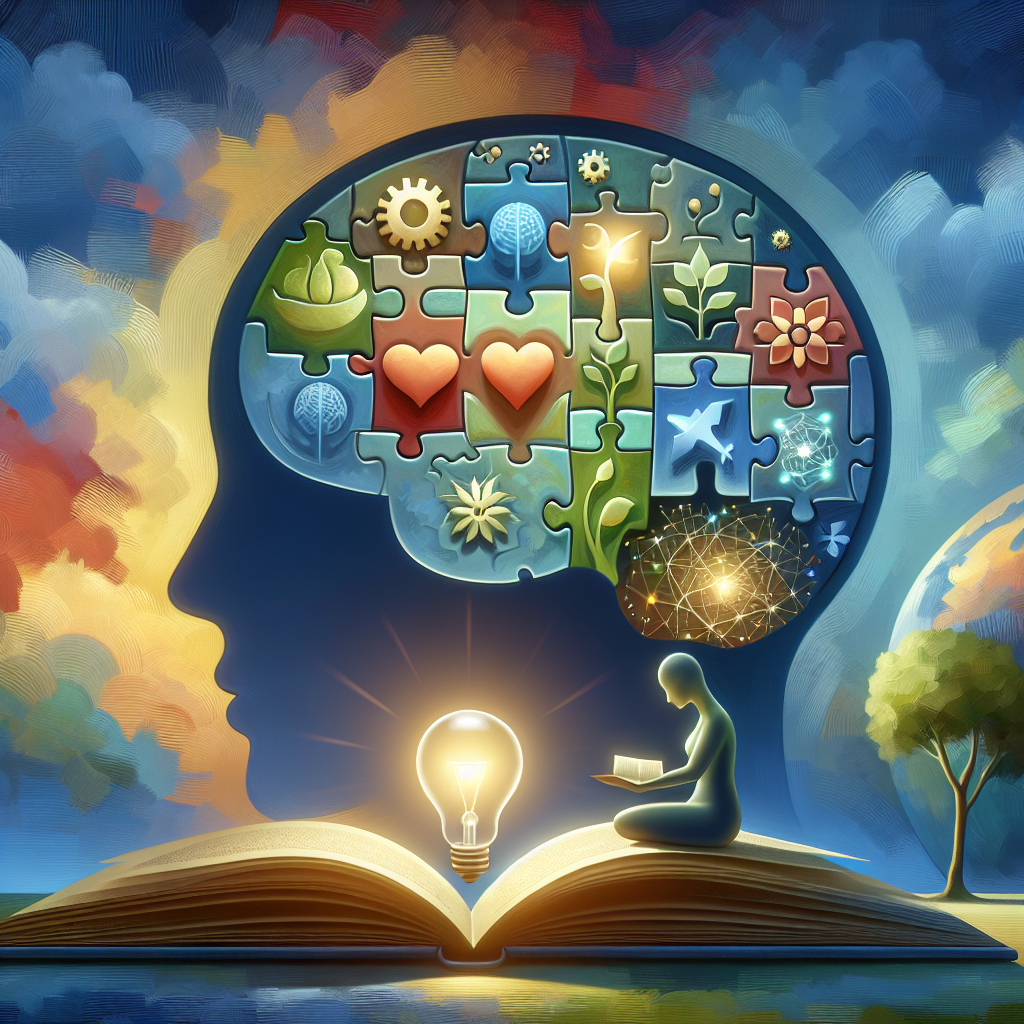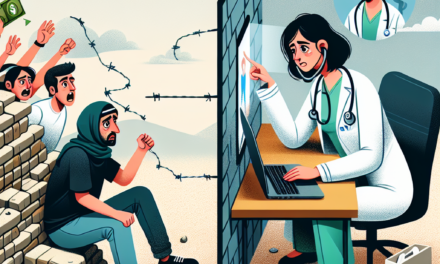The Impact of Social Media on Mental Health: How to Navigate the Digital World
In today’s digital age, social media has become an integral part of our daily lives. It has revolutionized the way we communicate, connect, and consume information. However, with its widespread use, there has been a growing concern about its impact on mental health. As we spend more and more time on social media, it is essential to understand its effects and learn how to navigate the digital world in a way that promotes positive mental health.
One of the most significant impacts of social media on mental health is the constant comparison to others. With the rise of influencers and curated feeds, it is easy to fall into the trap of comparing our lives to the seemingly perfect ones we see online. This can lead to feelings of inadequacy, low self-esteem, and even depression. It is crucial to remember that what we see on social media is often a highlight reel, and it is not an accurate representation of someone’s entire life.
Moreover, social media can also contribute to the fear of missing out (FOMO). As we scroll through our feeds, we see our friends and acquaintances having fun and living their best lives. This can create a sense of anxiety and pressure to keep up and be a part of every social event. It is essential to recognize that it is okay to take a break from social media and prioritize our mental well-being.
Another aspect of social media that can impact mental health is cyberbullying. With the anonymity of the internet, people can say hurtful things without facing any consequences. This can lead to feelings of isolation, anxiety, and even suicidal thoughts. It is crucial to be mindful of our words and actions online and to report any instances of cyberbullying. Additionally, it is essential to create a safe and supportive online community by standing up against cyberbullying and spreading positivity.
The constant use of social media can also affect our sleep patterns, leading to sleep deprivation. The blue light emitted from screens can disrupt our circadian rhythm, making it challenging to fall asleep. Moreover, the constant stimulation from social media can keep our minds active, making it difficult to relax and unwind. It is crucial to limit screen time before bed and create a bedtime routine that promotes relaxation and better sleep.
Furthermore, social media can also contribute to feelings of loneliness and isolation. While it allows us to connect with people from all over the world, it can also create a false sense of connection. We may have hundreds of friends and followers, but it does not necessarily mean we have meaningful relationships. It is essential to prioritize face-to-face interactions and cultivate genuine connections with people in our lives.
So, how can we navigate the digital world in a way that promotes positive mental health? Firstly, it is crucial to be mindful of our social media usage. We can set limits on our screen time and take breaks from social media when needed. It is also essential to curate our feeds and unfollow accounts that make us feel inadequate or trigger negative emotions.
Secondly, we can use social media as a tool for positivity and inspiration. We can follow accounts that promote body positivity, mental health awareness, and self-care. We can also use our platforms to spread kindness and support others.
Lastly, it is crucial to prioritize our mental health and seek help when needed. If social media is causing significant distress, it is essential to talk to a trusted friend or seek professional help. There is no shame in taking care of our mental well-being, and it is essential to remember that we are not alone in our struggles.
In conclusion, social media has undoubtedly changed the way we live, but it is essential to be aware of its impact on our mental health. By being mindful of our social media usage, creating a positive online community, and prioritizing our mental well-being, we can navigate the digital world in a way that promotes positive mental health. Let us use social media as a tool for connection, inspiration, and support, rather than a source of comparison, anxiety, and isolation.
Breaking the Stigma: Promoting Mental Health Awareness and Acceptance

Mental health has always been a topic that is often overlooked and stigmatized in society. However, in recent years, there has been a growing awareness and acceptance of the importance of mental health in our daily lives. With the rise of mental health issues and the impact it has on individuals, families, and communities, it is crucial to break the stigma surrounding mental health and promote awareness and acceptance.
One of the main reasons for the stigma surrounding mental health is the lack of understanding and education about it. Many people still view mental health as a weakness or something that can be easily overcome. This misconception leads to individuals feeling ashamed or embarrassed to seek help for their mental health issues. It is essential to educate ourselves and others about mental health to break this stigma and promote acceptance.
Another factor contributing to the stigma is the portrayal of mental health in the media. Movies, TV shows, and other forms of media often depict individuals with mental health issues as dangerous or violent. This portrayal only adds to the negative stereotypes and misconceptions surrounding mental health. It is crucial to have accurate and positive representation of mental health in the media to promote understanding and acceptance.
Breaking the stigma surrounding mental health is not only about promoting awareness and acceptance but also about creating a safe and supportive environment for those struggling with mental health issues. Many individuals fear judgment and discrimination, which prevents them from seeking help. By breaking the stigma, we can create a more inclusive and understanding society where individuals feel comfortable seeking help for their mental health.
One way to break the stigma is by starting conversations about mental health. By openly discussing mental health, we can normalize it and show that it is a common issue that affects many people. It is essential to listen and be empathetic when someone opens up about their mental health struggles. By doing so, we can create a safe space for individuals to share their experiences and seek support.
Another way to promote mental health awareness and acceptance is by educating ourselves and others about mental health. There are many resources available, such as books, articles, and online courses, that can help us understand mental health better. By educating ourselves, we can also learn how to support and help those struggling with mental health issues.
It is also crucial to address the language we use when talking about mental health. Using derogatory terms or phrases such as “crazy” or “psycho” only adds to the stigma surrounding mental health. Instead, we should use person-first language, which puts the individual before their mental health issue. For example, saying “a person with depression” instead of “a depressed person” shows that the individual is not defined by their mental health issue.
Breaking the stigma also involves challenging the societal norms and expectations that contribute to the pressure and stress individuals face. The constant need to be productive, successful, and perfect can take a toll on one’s mental health. By promoting self-care and self-acceptance, we can create a more compassionate and understanding society.
In conclusion, breaking the stigma surrounding mental health is crucial in promoting awareness and acceptance. By educating ourselves, starting conversations, and challenging societal norms, we can create a more inclusive and supportive environment for those struggling with mental health issues. It is time to recognize that mental health is just as important as physical health and to break the stigma once and for all. Let us all do our part in promoting mental health awareness and acceptance in today’s world.
Mindfulness and Self-Care: Strategies for Maintaining Mental Well-Being in a Busy World
In today’s fast-paced and constantly evolving world, it’s easy to get caught up in the hustle and bustle of daily life. With the pressure to succeed, the constant bombardment of information and the never-ending to-do lists, it’s no wonder that mental health has become a major concern. According to the World Health Organization, one in four people will experience a mental health issue at some point in their lives. This statistic highlights the importance of taking care of our mental well-being, and the need for strategies to maintain it in a busy world.
One of the key strategies for maintaining mental well-being is mindfulness. Mindfulness is the practice of being fully present and aware of our thoughts, feelings, and surroundings. It involves paying attention to the present moment without judgment or distraction. In a world where we are constantly multitasking and bombarded with distractions, mindfulness can help us slow down and focus on what truly matters.
One way to incorporate mindfulness into our daily lives is through meditation. Meditation is a practice that involves training the mind to achieve a state of calm and relaxation. It can be done in various forms, such as sitting in silence, focusing on the breath, or repeating a mantra. Research has shown that regular meditation can reduce stress, anxiety, and depression, and improve overall well-being.
Another way to practice mindfulness is through mindful eating. In today’s fast-paced world, we often eat on the go or while multitasking, without paying attention to what we are consuming. Mindful eating involves being fully present and aware of the food we are eating, savoring each bite, and paying attention to our body’s signals of hunger and fullness. This practice can help us develop a healthier relationship with food and improve our overall well-being.
In addition to mindfulness, self-care is another crucial aspect of maintaining mental well-being. Self-care involves taking care of our physical, emotional, and mental needs. It’s about prioritizing our own well-being and making time for activities that bring us joy and relaxation. In a busy world, it’s easy to neglect self-care and put others’ needs before our own. However, it’s important to remember that we cannot pour from an empty cup. Taking care of ourselves allows us to show up as our best selves for others.
Self-care can take many forms, and it’s important to find what works best for us individually. It could be taking a bubble bath, going for a walk in nature, reading a book, or spending time with loved ones. The key is to make self-care a regular part of our routine and not view it as a luxury but as a necessity for our mental well-being.
In addition to mindfulness and self-care, seeking professional help is also crucial for maintaining mental health. Just as we go to the doctor for physical ailments, it’s important to seek help from a mental health professional for any mental health concerns. Therapy can provide a safe and non-judgmental space to explore our thoughts and feelings and learn coping strategies to manage them.
In conclusion, in today’s fast-paced and busy world, it’s essential to prioritize our mental well-being. Mindfulness, self-care, and seeking professional help are all important strategies for maintaining mental health. By incorporating these practices into our daily lives, we can improve our overall well-being and lead happier and more fulfilling lives. Remember, our minds matter, and taking care of them should be a top priority.





